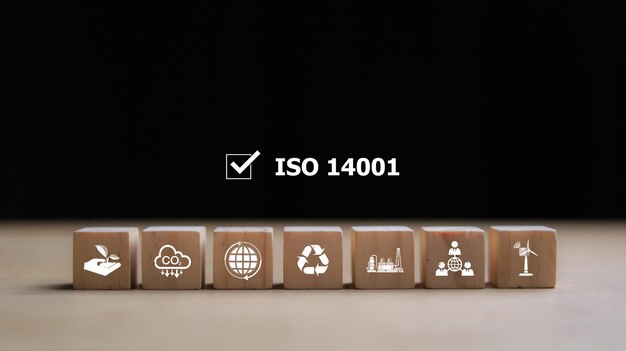So, what’s the deal with ISO 14001 training in Malaysia?
If you’ve been working in environmental consulting in Malaysia for even a short while, you’ve probably heard the buzz around ISO 14001. It’s that globally recognized standard for environmental management systems (EMS). But here’s the twist—not everyone knows what the training really involves or why it actually matters beyond the certificate. Spoiler: it’s not just about ticking boxes.
ISO 14001 isn’t some abstract, bureaucratic framework. At its core, it’s about helping organizations reduce their environmental impact while staying legally compliant and improving operational efficiency. That sounds ideal, right? Especially in a place like Malaysia where environmental regulations are tightening, and public awareness is on the rise.
But let’s not get ahead of ourselves. First, let’s unpack the nitty-gritty.
Why ISO 14001 is more than just another certificate
Alright, real talk: There’s a tendency to treat ISO certifications as just another feather in the cap. A shiny badge for your website footer. But when it comes to ISO 14001, that mindset’s a bit dangerous. Especially for consultants.
This standard has teeth. It’s about building a real culture of environmental responsibility within a business. That means identifying environmental risks, managing them, and—crucially—continually improving.
So, if you’re consulting for industries like manufacturing, construction, or even hospitality, ISO 14001 training becomes your playbook. It gives you the language and tools to speak confidently about audits, risk assessments, legal compliance, and life cycle thinking.
Think of it this way: you wouldn’t teach someone to drive just by handing them a car manual. Same logic here. Without the training, it’s all theoretical. With it, you’re equipping businesses with a GPS, not just a map.
Malaysia’s unique environmental landscape
Now here’s where it gets interesting. Malaysia has a fascinating environmental backdrop. You’ve got lush rainforests, rich biodiversity, and a growing eco-conscious public. But it’s also facing urban expansion, pollution challenges, and resource strain.
Environmental legislation in Malaysia has been evolving quickly—just ask anyone who’s had to stay updated on the Environmental Quality Act, or navigate DOE requirements. That local regulatory complexity means international standards like ISO 14001 need to be interpreted with some nuance.
Consultants who understand the local terrain, both literally and legally, are in a better position to guide businesses through compliance without overcomplicating things.
It’s not about being encyclopedic—it’s about being street smart. Knowing when a company’s waste management plan needs a little more backbone, or when their environmental aspects register is missing the forest for the trees. Literally.
Who needs the training—and who really needs it
ISO 14001 training isn’t just for QA managers or sustainability officers. Environmental consultants need it just as badly, maybe more.
Here’s why: you’re the one businesses rely on to navigate murky compliance waters. You’re the bridge between the standard and its execution. You help translate high-level requirements into practical action plans.
And whether you’re freelance or part of a firm, ISO 14001 training in malaysia elevates your authority. It gives you the tools to spot gaps, ask smarter questions, and recommend changes that make sense not just technically, but operationally too.
Also—let’s be blunt—it’s good for your reputation. It’s one thing to say you know ISO 14001. It’s another to show you’ve trained in it, applied it, and helped others ace their audits. That’s consultant gold.
Types of ISO 14001 training available in Malaysia
Let’s break it down. Not all training is created equal. You’ve got options, depending on your role, your goals, and how deep you want to go.
- Awareness Courses – Great for newbies or cross-functional teams. These give you the 10,000-foot view.
- Internal Auditor Courses – Perfect for consultants. These dive into audit principles, NCRs (non-conformance reports), and continuous improvement cycles.
- Lead Auditor Training – The heavy-hitter. This one’s for those aiming to lead third-party audits or get certified by IRCA. It’s a week-long boot camp, but worth it.
Common misconceptions—let’s bust a few
Misconception #1: “It’s just a training course, I’ll Google the rest.” Nope. The internet won’t tell you how to navigate internal politics or nudge a reluctant plant manager into changing procedures.
Misconception #2: “Only big companies need ISO 14001.” Actually, SMEs in Malaysia are increasingly adopting the standard, especially if they’re in supply chains for MNCs. So yeah, consultants better be ready.
Misconception #3: “Once certified, you’re good for life.” ISO 14001 is all about continuous improvement. That means surveillance audits, periodic reviews, and evolving legal requirements. If you’re not updating your knowledge, you’re falling behind.
Real benefits you can bring to clients post-training
Let’s get practical. After training, you’re not just nodding along in meetings. You’re actively spotting risks others overlook. You can:
- Identify weak points in EMS documentation
- Help clients prep for audits like a pro
- Guide management reviews with real insight
- Recommend realistic environmental objectives that won’t crash the budget
You’ll also understand the language of ISO—not just the clauses, but the intent. That means fewer misunderstandings and smoother implementations.
Plus, your value goes up. Training isn’t just a skill boost—it’s a business asset.
How to pick the right ISO 14001 training in Malaysia
Okay, you’re convinced. But now what? How do you pick the right course?
Here’s what to look for:
- Trainer experience – Have they been in the field or just teaching theory?
- Practical modules – Roleplays, case studies, or site audit simulations are game changers
- Follow-up resources – Are you left on your own after the course?
- Certifying body – Is it recognized internationally (IRCA, Exemplar Global)?
Also, talk to other consultants. Word of mouth still rules. Join forums, LinkedIn groups, or even local WhatsApp communities where environmental professionals hang out. Ask around. People love sharing what worked—and what didn’t.
A final note—why this matters now
Environmental stakes in Malaysia aren’t getting any lower. Climate risks, biodiversity loss, urban pollution—they’re all stacking up. And as the pressure mounts on industries to show responsibility, consultants are stepping into the spotlight.
Getting ISO 14001 training isn’t just about padding your CV. It’s about being prepared. It’s about giving real, actionable advice. And let’s be honest—it feels good to walk into a room knowing your insights can make a difference.
So yeah, take the training. Not because you have to, but because the environment—and your clients—deserve someone who gets it.








